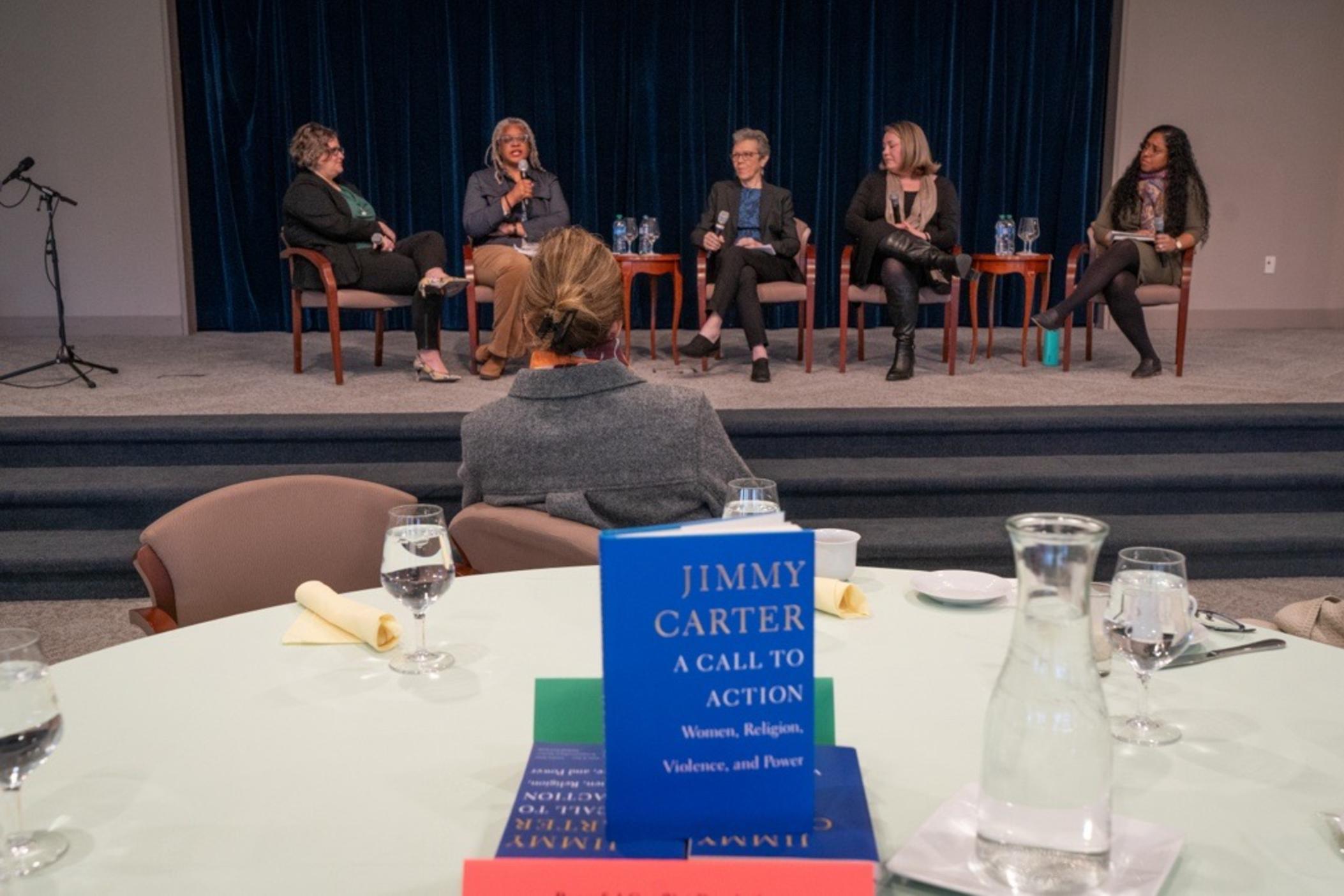Section Branding
Header Content
'A Call to Action': Carter Center celebrates book anniversary and Women's History Month
Primary Content
In 2014, former U.S. President Jimmy Carter released A Call to Action, a book about what he labeled the "No. 1 challenge in the world today": the abuse of women and girls. Carter's writing was the result of the Carter Center's work with faith leaders to advance human rights and women's rights.
Carter lists 23 action items in the chapters for governments, institutions and community organizations, including directives such as publicizing U.N. Security Resolutions, abandoning the death penalty, pushing for domestic and international Violence Against Women legislation, and convincing nations to elevate the end of the widespread scourge of human trafficking.
After the book’s release, President Carter made several appearances to support the topic, including a 2015 TED talk, in which he told a global audience, “Scriptures are misinterpreted to keep men in an ascendant position" — and called out religious hypocrisy, systematic gender-based violence and misleading laws about sex work.
Today, 10 years after A Call to Action, as the Carter Center continues its focus on improving women's rights, nearly all of the suggestions Carter made in 2014 still apply.
At the Carter Center on March 11, 2024, a multigenerational group of women gathered to revisit chapters in the book and engage in a workshop to help find solutions for all-too-common incursions of inequality, harassment and exploitation. We found that a lot has changed in a decade — namely, that many women now view progress as something to first tackle on the hyper-local level as much as in the "big picture" worldview.
During a breakfast, attendees first heard from a panel of some of Jimmy Carter's closest advisors at the Carter Center, including Beth Davis and Lauren Gay who managed his schedule and provided professional and personal assistance; Judy Langford Carter, a longtime Equal Rights Amendment campaigner who is the former daughter-in-law of Jimmy and Rosalynn Carter (and the mother of Jason Carter, Chair of the Carter Center Board of Trustees); and Meredith Evans, Ph.D., Director of the Jimmy Carter Presidential Library and Museum. Aklima Khondoker, a senior program advisor to the Carter Center, moderated the discussion.
While the women shared personal stories of their interactions with the Carters — some happening across decades — they also talked about how working with the former president bolstered them as colleagues. The words they spoke about their bosses included feeling "empowered," "welcomed" and that their careers had been nurtured in workplaces that were "trusting spaces" for women.
Carter Center leadership also assured attendees the organization is dedicated to continuing its work in the years ahead. The event was dedicated to the memory of late first lady Rosalynn Carter, who died in November 2023 but left behind an incredible legacy for women herself, including being the nation's leading mental health advocate for more than 50 years.
When it was time to discuss topics in a coffee breakout session, each group of six to eight women worked together to present a list of observations and actions, from promoting women's voices and safety to mobilizing women to become advocates or lawmakers and making problems easier to solve by bringing parties together on common ground.
Topics ranged from equal rights, equal pay, bodily autonomy and freedom from discrimination to respect on the job.
The concepts were complex, but as one participant at a table said: "A culture shift is needed ... in legal reform, popular culture and religion" to challenge power structures.
"Women need to start finding comfort in difficult conversations," she said.


